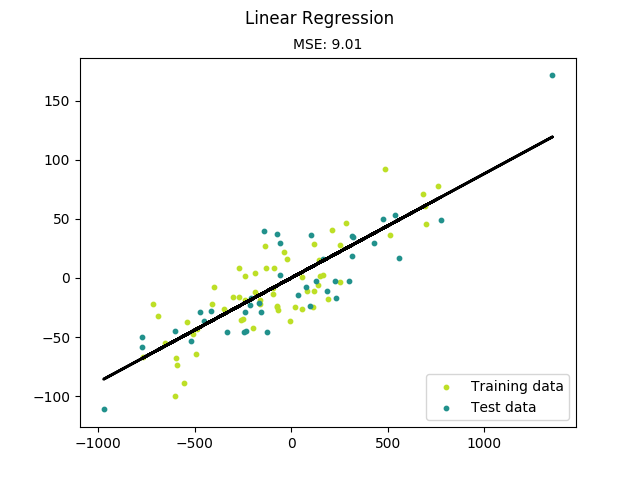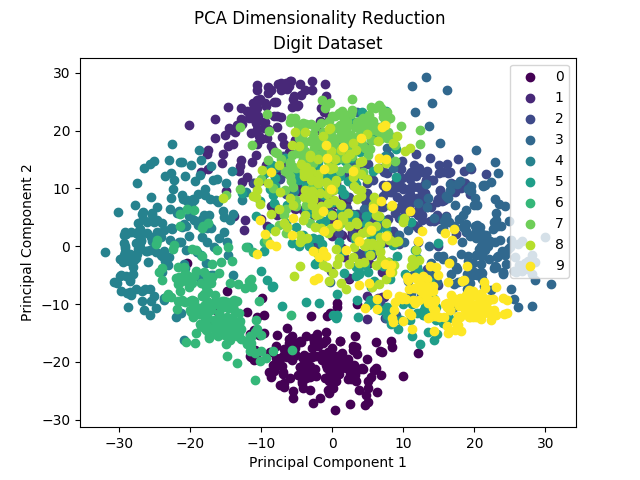Pocket-sized implementations of machine learning models.
$ git clone https://github.com/eriklindernoren/NapkinML
$ cd NapkinML
$ sudo python setup.py install
class LinearRegression():
def fit(self, X, y):
self.w = np.linalg.inv(X.T.dot(X)).dot(X.T).dot(y)
def predict(self, X):
return X.dot(self.w)$ python napkin_ml/examples/linear_regression.py
Figure: Linear Regression.
class LDA():
def fit(self, X, y):
cov_tot = sum([np.cov(X[y == c], rowvar=False) for c in [0, 1]])
mean_diff = X[y == 0].mean(0) - X[y == 1].mean(0)
self.w = np.linalg.inv(cov_tot).dot(mean_diff)
def predict(self, X):
return [1 * (x.dot(self.w) < 0) for x in X]$ python napkin_ml/examples/lda.py
class LogisticRegression():
def fit(self, X, y, n_epochs=4000, lr=0.01):
self.w = np.random.rand(X.shape[1])
for i in range(n_epochs):
self.w -= lr * -(y - sigmoid(X.dot(self.w))).dot(X)
def predict(self, X):
return np.round(sigmoid(X.dot(self.w))).astype(int)$ python napkin_ml/examples/logistic_regression.py
Figure: Logistic Regression.
class KNN():
def predict(self, k, Xt, X, y):
y_pred = np.empty(len(Xt))
for i, xt in enumerate(Xt):
idx = np.argsort([np.linalg.norm(x-xt) for x in X])[:k]
y_pred[i] = np.bincount([y[i] for i in idx]).argmax()
return y_pred$ python napkin_ml/examples/knn.py
Figure: Classification with K-Nearest Neighbors.
class PCA():
def transform(self, X, n):
eval, evec = np.linalg.eig(np.cov(X, rowvar=False))
idx = eval.argsort()[::-1]
evec = np.atleast_1d(evec[:, idx])[:, :n]
return X.dot(evec)$ python napkin_ml/examples/pca.py
Figure: Dimensionality reduction with Principal Component Analysis.



